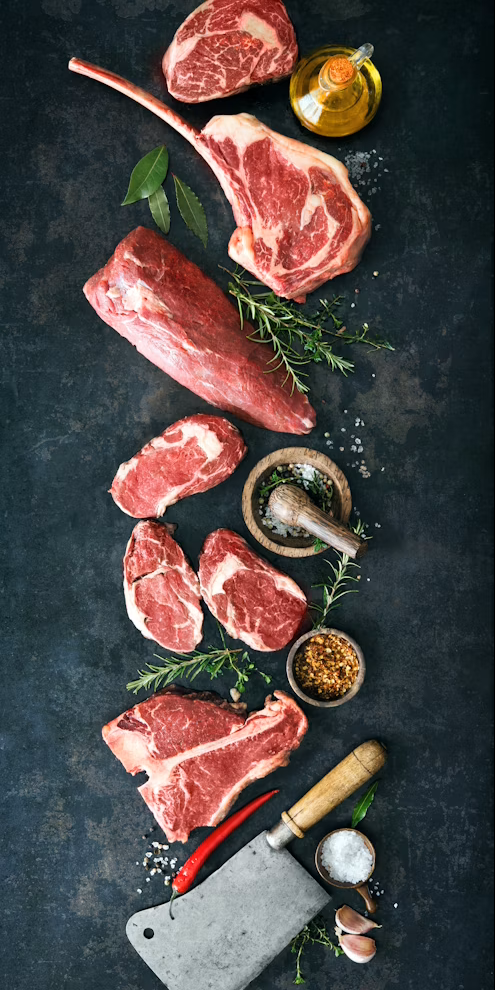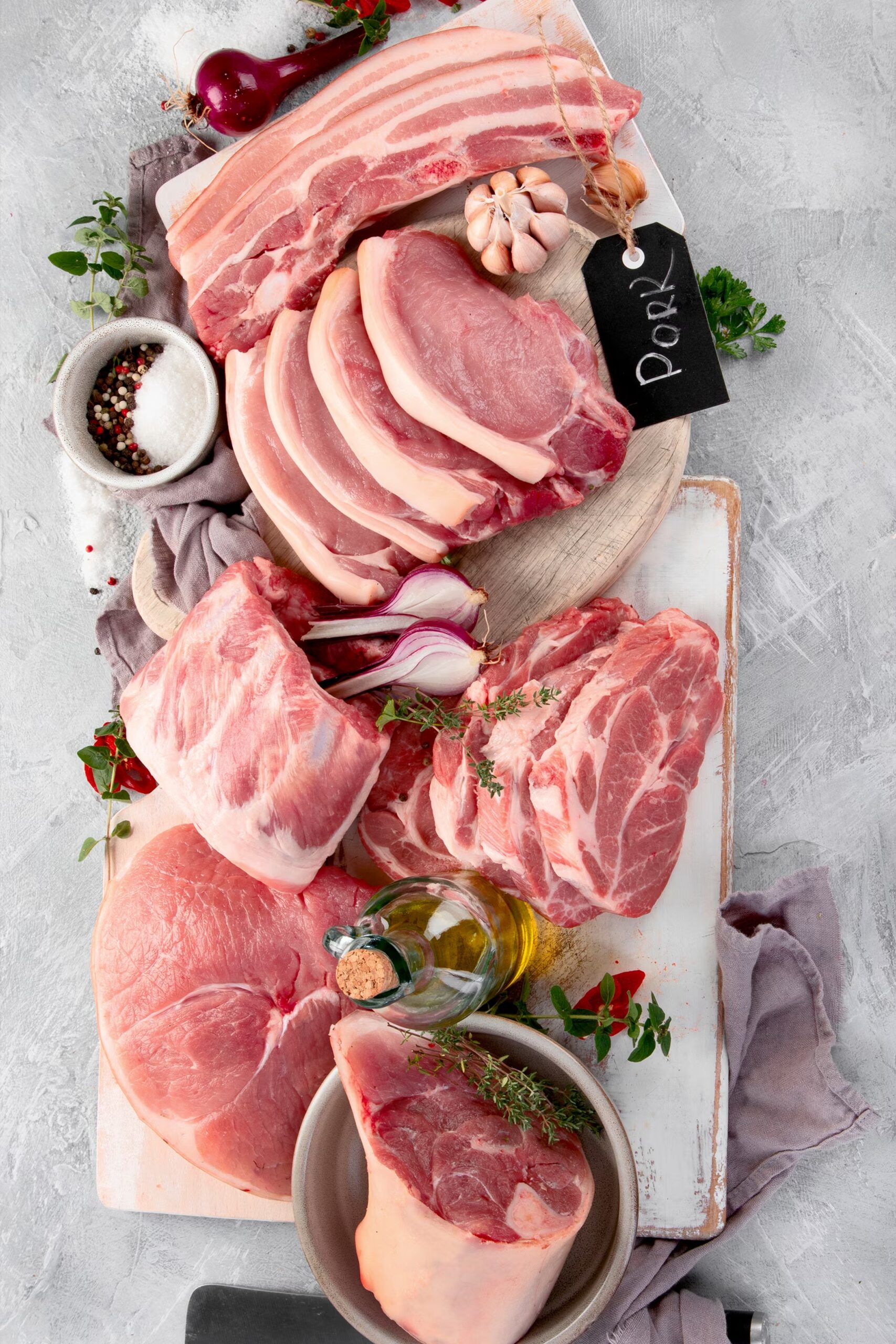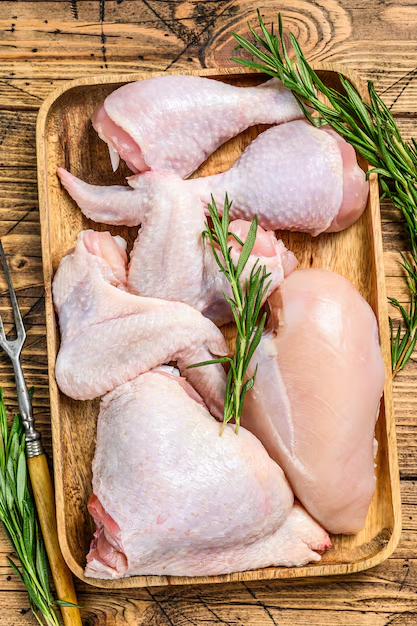At Bio-Grain, we offer high-quality meat products sourced from trusted, certified producers who adhere to the highest standards of food safety, animal welfare, and international regulations. Our meat supply chain is built for efficiency, hygiene, and compliance — ensuring fresh, safe, and premium-grade protein for global markets.Raised on expansive pastures by local family farms that take sustainable stewardship seriously, our livestock is fed a 100% natural, plant-based diet that contains no added by-products or hormones to deliver a great, rustic flavor.
1.Beef
Beef comes from cattle, and it’s one of the most widely consumed meats globally. It’s prized for its flavor, tenderness, and nutritional value, including being a rich source of protein, iron, and B vitamins.
Production Methods:
- Grass-fed Beef: Cattle are raised primarily on grass, and the meat tends to be leaner with a distinct flavor.
- Grain-fed Beef: Cattle are typically fed grains like corn to fatten them up before slaughter. This method can lead to marbled meat, which is more tender and flavorful.
- Organic Beef: Raised without antibiotics or hormones and fed organic feed. It’s often marketed as a healthier and more ethical choice.
Sustainability & Trends:
- Beef has a significant environmental footprint due to the resources needed to raise cattle (land, water, feed). As a result, there’s growing interest in sustainable beef production.
- Innovations like lab-grown beef and plant-based beef alternatives (e.g., Beyond Meat) are gaining traction as more people seek to reduce meat consumption for health or environmental reasons.
2.Pork
Pork comes from pigs and is one of the most consumed meats worldwide, especially in China and Europe. It’s versatile, with cuts like bacon, ham, chops, and ribs being popular in many cuisines.
Production Methods:
- Conventional Farming: Pigs are typically raised in large commercial operations. This system can produce pork at scale but often raises concerns over animal welfare and environmental impact.
- Free-range and Pastured Pork: These methods allow pigs to roam outdoors, which can improve their quality of life and lead to leaner, more flavorful meat.
- Organic Pork: Raised without the use of synthetic pesticides, hormones, or antibiotics, organic pork is sought after by consumers looking for a healthier, more ethically produced product.
Sustainability & Trends:
- Pork production is less resource-intensive than beef, but issues like factory farming and waste management continue to raise concerns.
- Alternative proteins like plant-based pork products (e.g., Impossible Pork) are entering the market as consumers seek more sustainable options.
3.Chicken
Chicken is the most widely consumed meat globally due to its affordability, versatility, and relatively low environmental impact compared to beef and pork.
Production Methods:
- Conventional Poultry Farming: Chickens are raised in large, controlled environments with a focus on rapid growth and cost-efficiency. These systems often involve confined spaces, which raises concerns over animal welfare.
- Free-range and Pastured Chicken: Chickens are allowed to roam and forage outdoors, which typically results in better meat quality and more ethical farming practices.
- Organic Chicken: Raised without antibiotics or hormones, and fed organic feed, organic chicken is marketed as a more natural choice.
Sustainability & Trends:
- Poultry has a smaller carbon footprint compared to red meats, making it an increasingly popular choice for consumers looking to reduce their environmental impact.
- Plant-based chicken alternatives (e.g., Beyond Chicken, Impossible Chicken) are growing in popularity as more consumers opt for plant-based diets.



